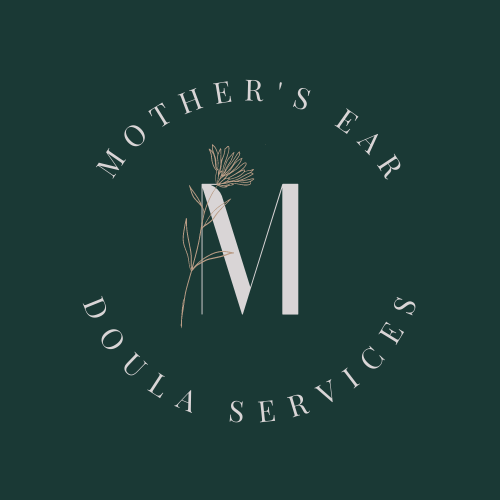Where Will You Birth?: Hospital birth, homebirth, and birthing center
When it comes to deciding where to bring your little one into the world, it might seem like a no-brainer to go straight to the hospital. After all, that's where most people go, right? We see it in the media, our mothers, our grandmothers… But if you're anywhere on social media today, you’ve probably heard whispers about home births or maybe even birthing centers, and you’re curious. What’s the big deal? What does each option really entail? Is that an option for me? Keep reading for my main four recommendations to consider when deciding where to give birth!
When I was pregnant with my son, I had my heart set on a homebirth. I loved the idea of being in my own space, surrounded by familiar sights and sounds. But life, as it often does, threw us some curveballs. Financially, a homebirth was just out of reach for us with a midwife. Then came my son's diagnosis of a birth defect, which meant that even a birthing center was also no longer an option. So, like many parents, we ended up at the hospital.
I understand how overwhelming this decision can be. It’s easy to default to a hospital birth without considering other options—options that might actually align better with your personal values and circumstances. But here’s the thing: Where you choose to give birth is one of the most significant decisions you’ll make during your pregnancy, and it’s worth taking the time to weigh your options carefully.
The Case for Homebirth
Homebirth offers a level of autonomy and comfort that’s hard to beat. You’re in your own environment, free to move, eat, and drink as you please. Many women find that this freedom and comfort lead to a smoother postpartum transition and a higher satisfaction with their birth experience. Plus, home births are often less interrupted, meaning you have a higher chance of a vaginal birth without the pressure of unnecessary interventions. A midwife often presides over a homebirth and is well trained in supporting out of hospital births. Midwife supported births also have their own additional benefits.
But there are downsides too. Insurance might not cover the costs of a homebirth, and if something goes wrong, you’ll need to transfer to a hospital, which can take time. And let’s not forget the practical side—birth is messy, and you (or your midwife/doula) will be responsible for the cleanup.
The Reality of Hospital Birth
Hospitals are the go-to for many because of the pressure from society, family members, and medical professionals. It has immediate medical attention available which many deem a necessity. If you want medical pain control or have risk factors that need close monitoring, the hospital might seem like the safest bet. Plus, insurance typically covers the costs, and the NICU is often just a floor away if your baby needs special care.
However, hospital births come with their own set of challenges. The environment can be stressful, with bright lights, frequent interruptions, and a lack of comfort. You might find yourself on a strict timeline, with pressure to speed up labor, and there’s no guarantee that your preferred provider will be on call. Many hospitals also have strict policies on who can be present during the birth, and you might face limitations on eating and drinking during labor.
The Middle Ground: Birth Centers
Birth centers offer a compromise between home and hospital births. They provide a less medicalized atmosphere, with the ability to move freely and choose your birthing position. Water births are common, and you’re usually allowed to eat and drink during labor. Birth centers are a great option for women who want a natural birth experience but with the security of being close to medical help if needed.
However, like home births, birth centers might not be covered by insurance, and they don’t offer medical pain relief. If complications arise, you’ll need to transfer to a hospital, which can be stressful and time-consuming.
So, How Do You Choose?
It all comes down to four key considerations:
Do you want a low-intervention birth? If you’re looking to avoid unnecessary medical interventions, a home birth or birth center might be your best bet. Hospitals often have higher rates of interventions, which can lead to complications including cesarean.
What kind of birth experience do you value? If comfort and autonomy are important to you, a homebirth might offer the environment you’re looking for. If you want the security of immediate medical care, a hospital might be more your style.
What risk factors do you have, or what is a risk to you? If you have certain medical conditions or a high-risk pregnancy, a hospital birth might be the safest choice. But if you’re low-risk, a home birth or birth center could be perfectly safe.
How much are you willing to prepare for birth? Home births and birth center births often require more preparation—physically, mentally, and logistically. Are you ready to put in the work, or would you prefer the all-inclusive nature of a hospital birth? Hopsital births require their own preparation if you value an autonomous and physiological birth.
Every option has its pros and cons, and none of them can guarantee a trauma-free birth. The key is to choose the option that aligns best with your personal values, your health, and your vision for your birth experience.
If you’re feeling uncertain or overwhelmed, you’re not alone. That’s why I’m here to help. Join my email list for upcoming childbirth education courses where we dive deeper into these topics, helping you make the most informed decision for your birth. Remember, the more you know, the more empowered you’ll feel when the big day arrives.
Sources:
https://www.sarawickham.com/research-updates/is_home_birth_safe/
https://www.cochrane.org/CD000352/PREG_planned-hospital-birth-versus-planned-home-birth
https://www.sciencedirect.com/science/article/pii/S0266613824001840
https://www.birthcenters.org/news/nbcs2
https://evidencebasedbirth.com/rise-of-home-birth-in-the-us-podcast/
